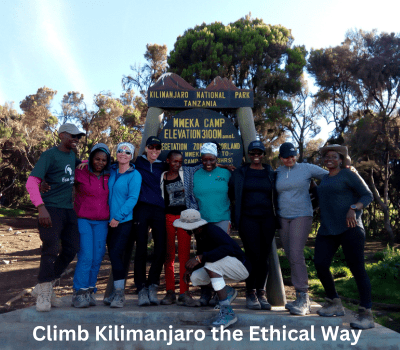What Are the Benefits of Hiring a Guide for Climbing Kilimanjaro?
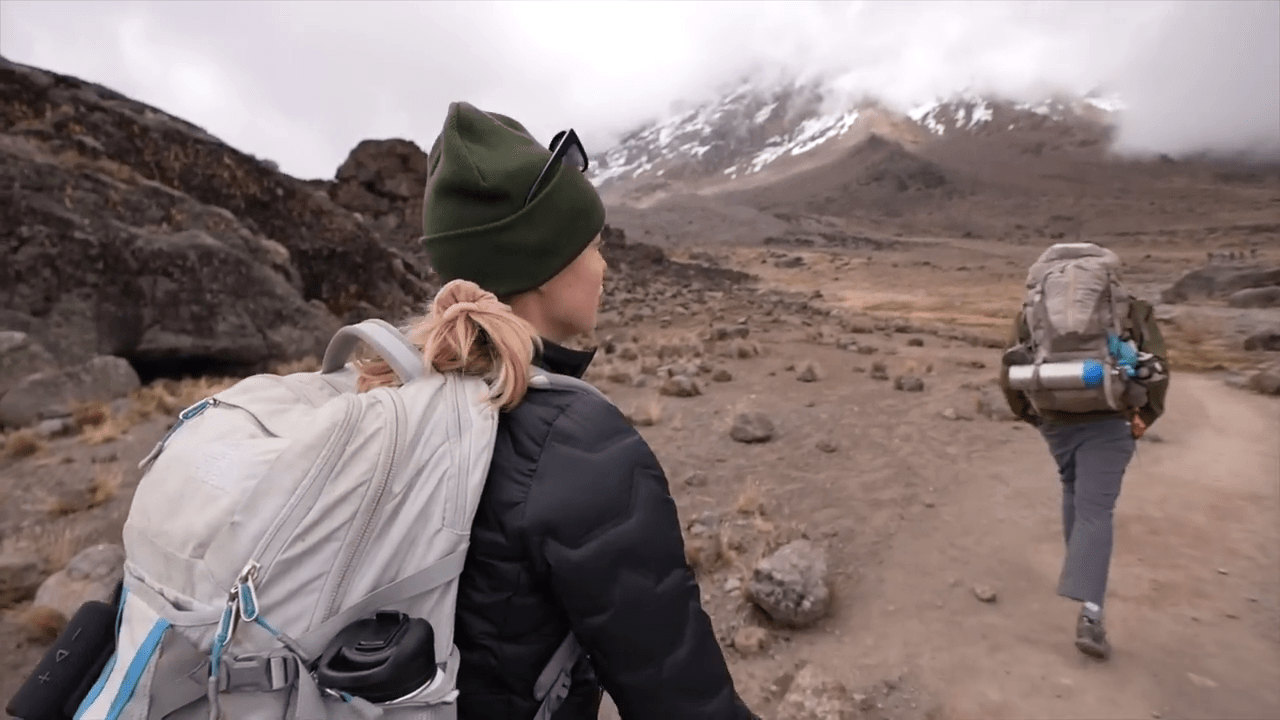
Introduction: Climbing Kilimanjaro Is Not a Solo Game
There’s something undeniably romantic about the idea of climbing a mountain solo—just you, the trail, and the clouds above. But when it comes to Mount Kilimanjaro, the highest peak in Africa, going it alone isn’t just discouraged—it’s illegal. That’s because this adventure is no ordinary hike. With altitudes nearing 6,000 meters, unpredictable weather, and diverse ecological zones, climbing Kilimanjaro demands knowledge, preparation, and support.
This is where a professional, licensed guide becomes not just helpful, but essential. From safety to morale, from logistics to storytelling, the benefits of hiring a guide are immense. Whether you’re a seasoned trekker or a first-time hiker, having an experienced local by your side makes your climb smoother, safer, and far more enriching.
In this article, we’ll explore the top benefits of climbing Kilimanjaro with a guide—and why companies like Eco-Africa Climbing make all the difference when it comes to ethical, unforgettable mountaineering experiences.
Mandatory Guide Requirement: More Than Just a Rule
Before we get into the benefits, let’s be clear: hiring a guide isn’t just recommended—it’s the law. The Tanzania National Parks Authority (TANAPA) requires all climbers to be accompanied by a licensed guide on Kilimanjaro. Park rangers at every gate enforce this rule strictly, and attempting a solo climb can lead to fines, deportation, and being banned from future climbs.
But this regulation isn’t just about control—it’s about protection. It ensures that every climber receives basic medical supervision, environmental education, and emergency support. It also helps maintain trail integrity and provides crucial employment for thousands of Tanzanians. Companies like Eco-Africa Climbing are fully compliant with this policy and provide licensed guides who are both experienced and empathetic.
Navigation and Local Expertise You Can’t Get from Maps
Kilimanjaro is not just a mountain—it’s a maze of trails, ridgelines, climate zones, and cultural significance. A GPS device can tell you your altitude, but it won’t tell you when to rest, which fork to take during a rockfall detour, or what to do if clouds roll in unexpectedly.
Guides from reputable operators like Eco-Africa Climbing know the routes like the back of their hand. Whether you’re on the steep switchbacks of the Machame Route or traversing the scenic Lemosho Route, a guide helps you avoid missteps—literally and figuratively.
They also share rich cultural and historical insights. You’ll learn about local Chagga traditions, ecological landmarks, and the significance of Uhuru Peak beyond just its elevation. That kind of depth doesn’t come from a guidebook—it comes from lived experience.
Medical Safety and Altitude Monitoring from Certified Guides
Perhaps the biggest risk on Kilimanjaro isn’t falling—it’s altitude sickness. Acute Mountain Sickness (AMS) can strike anyone, regardless of fitness level. Symptoms range from nausea and dizziness to life-threatening pulmonary or cerebral edema. Recognizing and responding to these signs early is vital.
Certified guides are trained in high-altitude response and carry tools like pulse oximeters, emergency oxygen, and knowledge of proper acclimatization techniques. At Eco-Africa Climbing, all guides are Wilderness First Responder (WFR) certified, ensuring they can assess and respond to medical issues as they arise.
Your guide checks your vitals daily, adjusts pace accordingly, and makes the critical call if descent is necessary. No device or app can replace that level of judgment.
Climbing With a Guide Increases Your Summit Success Rate
Statistics show that climbers with experienced guides have a significantly higher summit success rate. Why? Because guides know how to pace the trek, choose the right acclimatization strategy, and keep you motivated when fatigue sets in. They help manage hydration, nutrition, and rest periods so your body has the best chance to adapt and perform.
Companies like Eco-Africa Climbing maintain an impressive summit success rate—far higher than those attempting climbs without adequate support. With multiple successful summits under their belts, their guides tailor the journey to your needs while keeping your goal in clear view.
Psychological Support and Motivation: Your Guide as a Climbing Coach
Climbing Mount Kilimanjaro is as much a mental challenge as it is a physical one. The altitude, fatigue, and unpredictable weather can test even the most seasoned trekkers. This is where a guide’s role transcends navigation and safety—they become your coach, cheerleader, and confidant.
Experienced guides understand the psychological hurdles climbers face. They offer encouragement during tough stretches, share motivational stories, and maintain a positive atmosphere that keeps morale high. Their presence can be the difference between giving up and pushing through to the summit.
Moreover, guides help manage group dynamics, ensuring that team members support each other and work together harmoniously. This camaraderie fosters a sense of unity and shared purpose, making the climb a more enjoyable and fulfilling experience.
Cultural and Environmental Insights: Enriching Your Climb
Hiring a local guide offers a unique opportunity to gain deeper insights into the rich cultural heritage and diverse ecosystems of Mount Kilimanjaro. Guides share stories about the Chagga and Maasai peoples, their traditions, and their connection to the mountain.
As you ascend through various ecological zones, guides point out endemic flora and fauna, explaining their significance and adaptations. This educational aspect transforms your trek into an immersive experience, fostering a greater appreciation for the natural world.
Additionally, guides promote responsible trekking practices, educating climbers on Leave No Trace principles and the importance of preserving the mountain’s delicate environment for future generations.
Ethical Employment and Community Support: Making a Positive Impact
Hiring a guide through a reputable company like Eco-Africa Climbing ensures that your climb supports ethical employment practices and contributes to the local economy. These companies adhere to fair labor standards, providing guides and porters with proper wages, equipment, and working conditions.
By choosing such organizations, you help sustain livelihoods and empower communities in the Kilimanjaro region. Your trek becomes more than a personal achievement—it becomes a means of supporting social and economic development in the area.
Furthermore, many of these companies are involved in community projects, such as education initiatives and environmental conservation efforts, amplifying the positive impact of your adventure.
Logistical Support and Stress-Free Planning
Climbing Mount Kilimanjaro involves meticulous planning and coordination. From obtaining permits and arranging transportation to organizing meals and managing equipment, the logistics can be overwhelming. Hiring a professional guide simplifies this process, allowing you to focus on the climb itself.
Guides handle all the necessary arrangements, ensuring that everything is in place for a smooth and enjoyable experience. They work with support staff, such as porters and cooks, to provide meals and set up campsites, ensuring your comfort throughout the journey. This comprehensive support system allows you to conserve energy and maintain focus on reaching the summit.
Moreover, guides are well-versed in the administrative requirements of the climb, such as park regulations and safety protocols. Their expertise ensures compliance with local laws and contributes to a hassle-free adventure.
Group Dynamics and Camaraderie
Embarking on a Kilimanjaro climb with a guide often means joining a group of like-minded adventurers. This group setting fosters a sense of camaraderie and mutual support, enhancing the overall experience. Sharing the journey with others provides opportunities for encouragement, shared stories, and lasting friendships.
Guides play a crucial role in managing group dynamics, ensuring that all members feel included and supported. They facilitate communication, mediate conflicts, and adapt the pace to accommodate varying fitness levels. This inclusive approach creates a positive and cohesive group environment, making the climb more enjoyable for everyone involved.
Additionally, the shared experience of overcoming challenges and reaching the summit together strengthens bonds among group members, creating memories that last a lifetime.
Route Selection and Customization
Mount Kilimanjaro offers several routes to the summit, each with its own unique characteristics, challenges, and scenic views. Choosing the right route is crucial for a successful and enjoyable climb. Experienced guides provide valuable insights into the various options, helping you select a route that aligns with your fitness level, time constraints, and personal preferences.
Guides also customize the itinerary to optimize acclimatization and increase the likelihood of reaching the summit. They adjust the pace, schedule rest days, and choose suitable campsites based on the group’s needs and conditions on the mountain. This personalized approach enhances safety and comfort, ensuring a more rewarding experience.
Furthermore, guides share detailed information about the flora, fauna, and geological features encountered along the chosen route, enriching your understanding and appreciation of the mountain’s diverse ecosystems.
Conclusion: Why a Guide is Your Greatest Asset on Kilimanjaro
Climbing Mount Kilimanjaro is an extraordinary journey—but it should never be attempted alone. The mountain’s challenges demand more than physical strength; they require strategic pacing, health monitoring, cultural respect, and environmental responsibility. Hiring a guide ensures you have all of this—and more.
From increasing your summit success rate to enriching your understanding of the mountain, a certified, ethical guide from Eco-Africa Climbing transforms your climb into a holistic, meaningful, and safe adventure. You’ll not only reach Uhuru Peak—you’ll do so ethically, responsibly, and in the company of local experts who are passionate about Tanzania and its natural wonders.
Frequently Asked Questions (FAQs)
Is it mandatory to hire a guide for Kilimanjaro?
Yes. Tanzanian law requires all climbers to be accompanied by a licensed guide. This is strictly enforced at all park gates.
How does a guide increase my chances of reaching the summit?
Guides understand proper pacing, altitude strategies, and health monitoring—all of which dramatically improve your chances of reaching Uhuru Peak safely.
What qualifications should my guide have?
Look for TANAPA licenses, Wilderness First Responder (WFR) certification, and affiliation with KPAP. Reputable operators like Eco-Africa Climbing ensure all guides meet these standards.
What if I’ve done high-altitude trekking before—do I still need a guide?
Yes. Regardless of experience, the law requires a guide, and their presence is vital for local coordination, legal compliance, and environmental stewardship.
Will hiring a guide benefit local communities?
Absolutely. Ethical operators pay fair wages, invest in community development, and support local economies. Your climb becomes a force for good.
Book a Guided Kilimanjaro Adventure With the Experts at Eco-Africa Climbing
Make your climb safe, successful, and unforgettable. At Eco-Africa Climbing, we offer world-class service, experienced guides, and 100% local leadership. Join us for a trek that respects nature, uplifts communities, and gives you a story worth telling.
Explore our most recommended routes:
Book your climb today or contact us for personalized guidance and support.
Share:
Related Posts
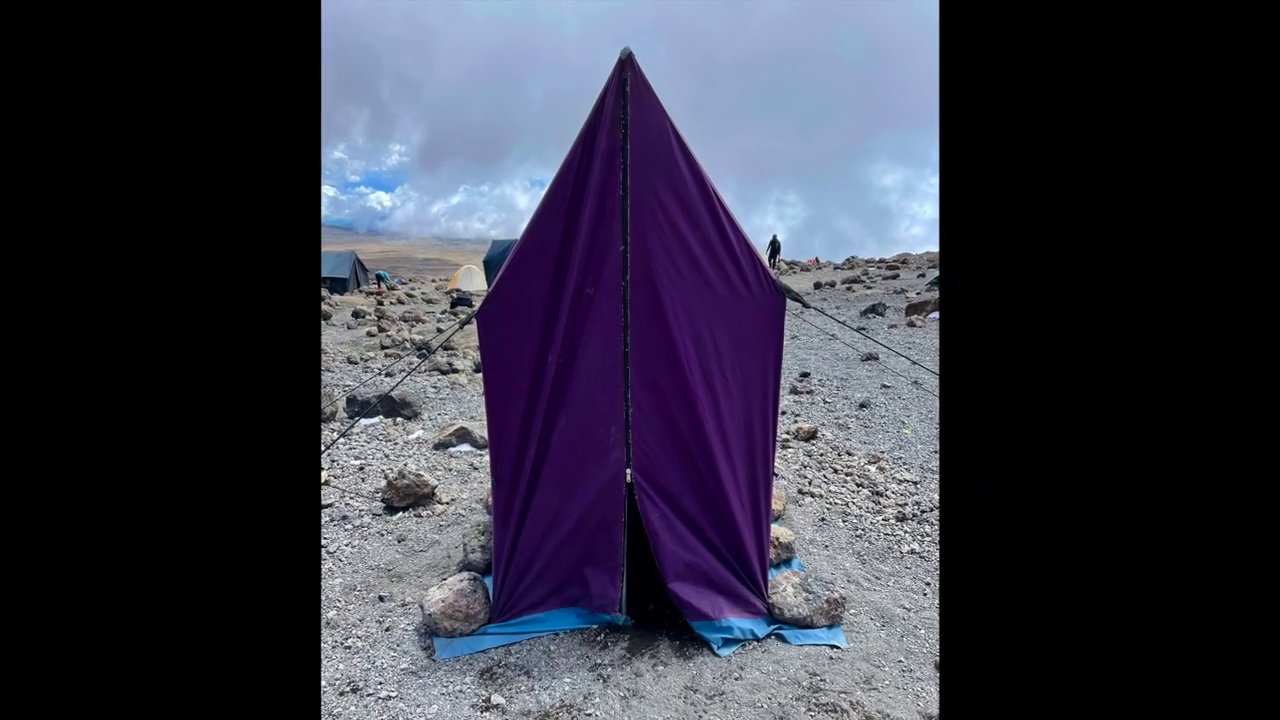
bathroom on mountain kilimanjaro
Bathroom on Mountain Kilimanjaro: What to Expect and How to Prepare Introduction One of the most common — and least discussed — questions from people
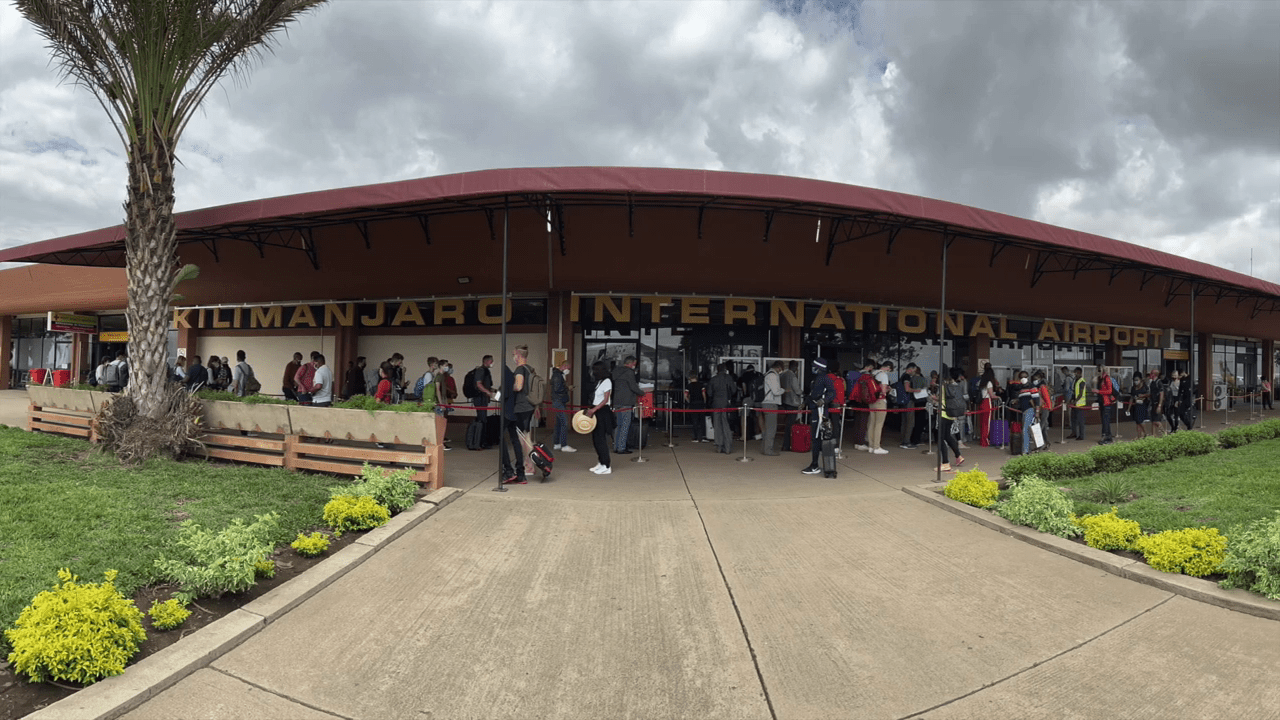
Are Guides Readily Available in Tanzania Without Prior Booking?
Are Guides Readily Available in Tanzania Without Prior Booking? Introduction: Should You Risk Climbing Without Pre-Booking? Climbing Mount Kilimanjaro is a dream for many adventurers.
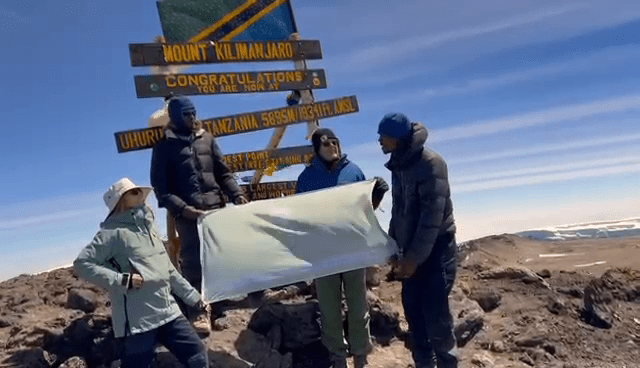
How Can I Find a Reliable Local Guide for My Kilimanjaro Expedition?
How Can I Find a Reliable Local Guide for My Kilimanjaro Expedition? Introduction: Why the Right Guide Is Key to Kilimanjaro Success Climbing Mount Kilimanjaro
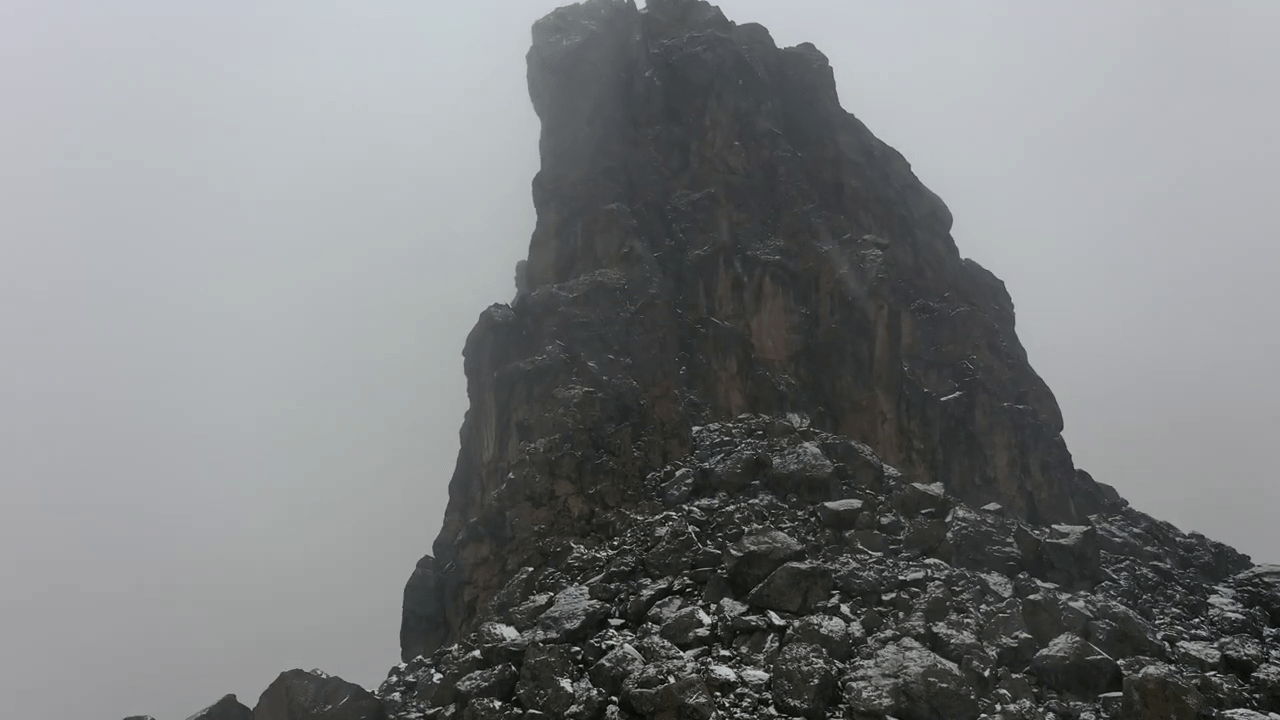
Is Climbing Kilimanjaro Dangerous for Individuals Without Mountaineering Experience?
Is Climbing Kilimanjaro Dangerous for Individuals Without Mountaineering Experience? Introduction: The Myth of Danger and Experience Many aspiring adventurers wonder if climbing Mount Kilimanjaro is
